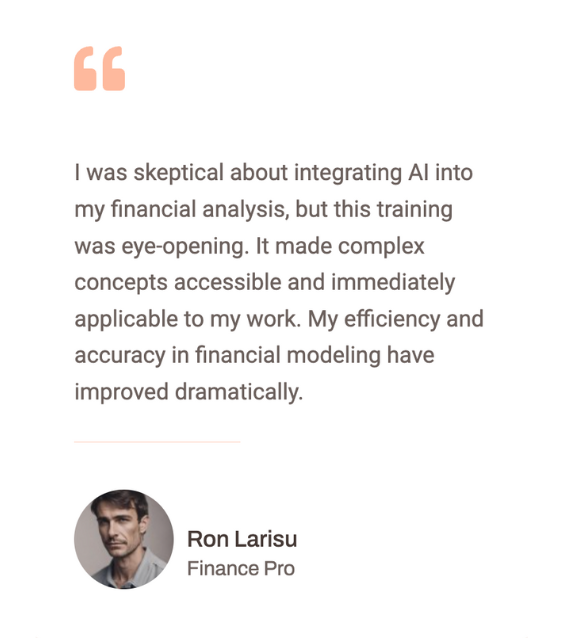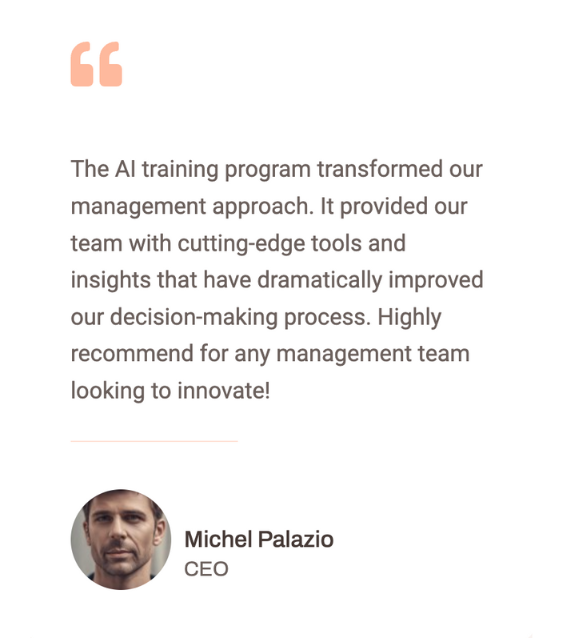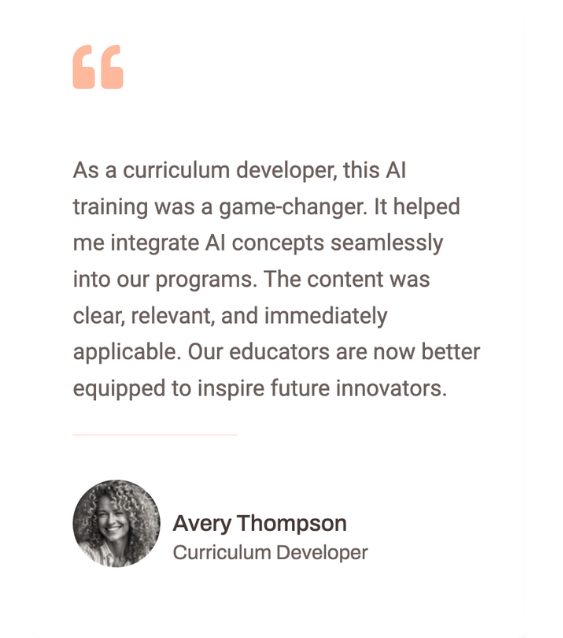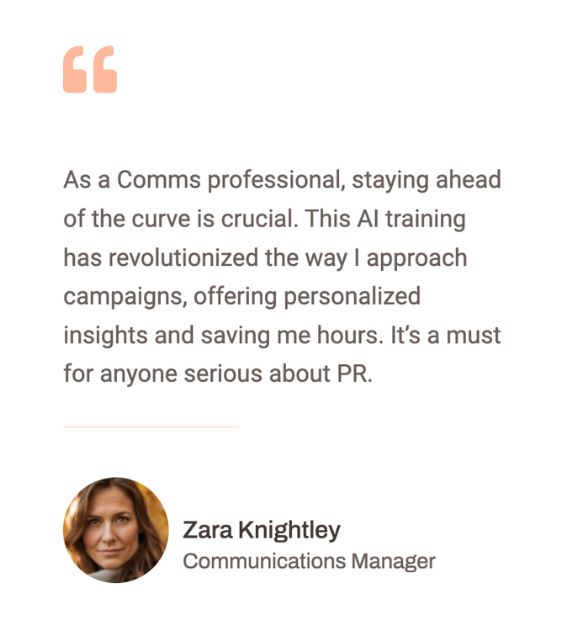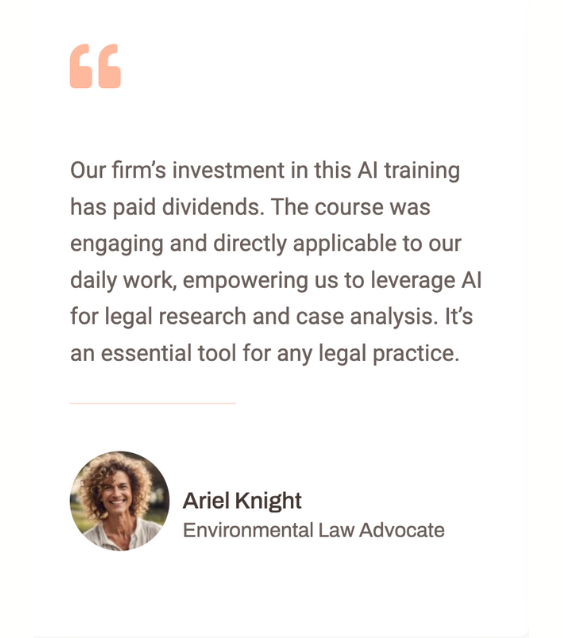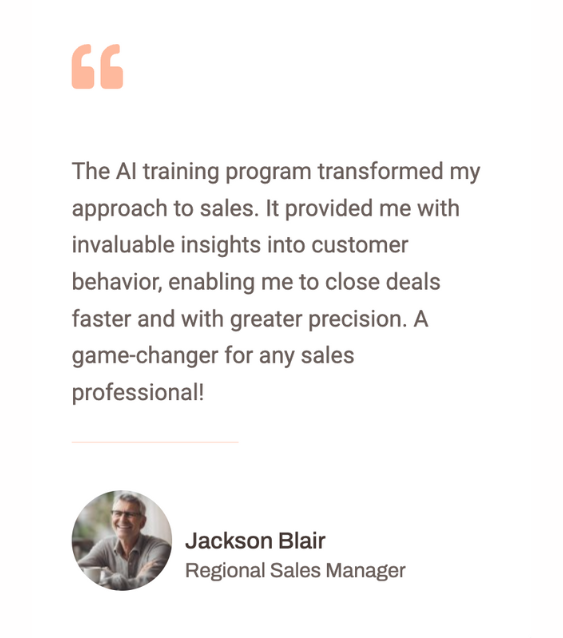Video Course: AI Tools For Law Firms
Transform your legal practice with AI in our 'Video Course: AI Tools For Law Firms'. Discover how AI enhances efficiency and scalability, revolutionizing legal research, case management, and document automation. Embrace the future of law today.
Related Certification: Certification: Implementing AI Tools for Enhanced Law Firm Efficiency
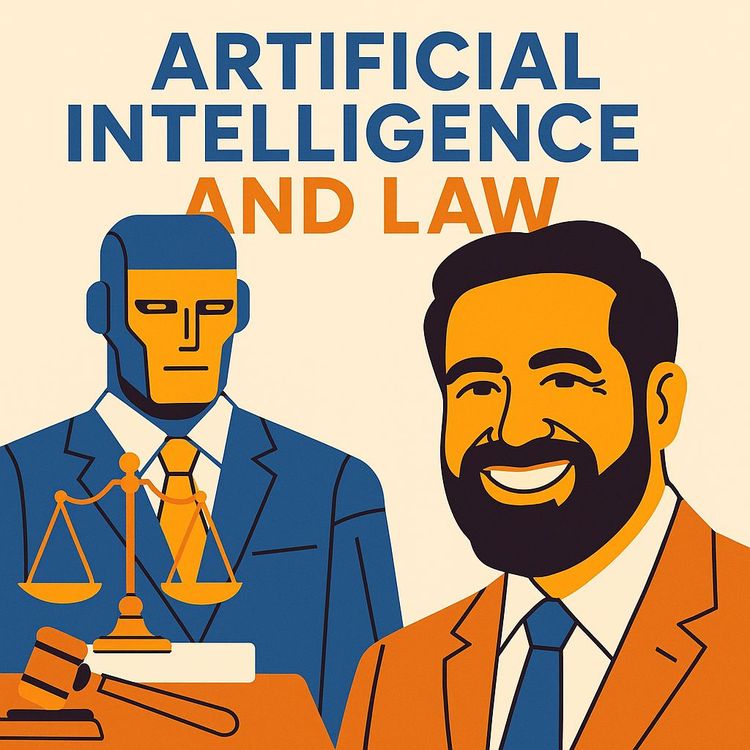
Also includes Access to All:
What You Will Learn
- Identify AI tools for legal research and litigation
- Automate demand letters, discovery, and document drafting
- Use AI to analyze and summarize medical records
- Integrate AI with cloud case management platforms
- Assess ethical, privacy, and cost considerations
Study Guide
Introduction
Welcome to the 'Video Course: AI Tools For Law Firms.' In this course, we will explore how artificial intelligence (AI) is revolutionizing the legal industry. We'll dive deep into the tools and technologies that are enhancing efficiency, scalability, and cost-effectiveness in law firms. Whether you're a seasoned attorney or new to the legal field, understanding how to leverage AI can transform your practice. This course will guide you through the practical applications of AI tools, helping you streamline workflows and reduce manual processes. Let's embark on this journey to modernize your legal practice with AI.
AI as a Tool for Scalability and Efficiency
One of the primary benefits of AI in law firms is its ability to help scale operations efficiently. AI tools automate tasks traditionally requiring significant human effort, enabling firms to grow without increasing personnel. For instance, automating demand letters can reduce high turnover and training costs associated with manual processes. The reason why this is a fantastic product is because it is built on legal research. If anybody here has law firms that are built to scale, this helps you scale.
This highlights AI's value proposition: enabling growth without proportional manual labor. By automating repetitive tasks, law firms can handle more work with fewer resources.
AI in Legal Research and Case Management
AI-powered tools are transforming legal research and case management. For instance, CaseText Co-Counsel competes with platforms like Westlaw and LexisNexis, offering legal research, outline generation, and case brief creation. I think one of the best litigation tools is CaseText Co-Counsel. They launched CaseText to compete with Westlaw and LexisNexis. The use case for this is to use it for legal research, draw me an outline, do me a case brief. Now you have artificial intelligence that can do that for you.
Additionally, case management platforms like Clio and Filevine are integrating AI to enhance their offerings. These platforms extract data and automate processes, improving efficiency. The case manager platforms all of these ones that I put here I like a lot. They are incorporating a lot of AI. Any of these will be very good for you because they're starting to adopt artificial intelligence, creating their own but more importantly integrating with other ones that do it very well.
AI for Document Automation and Analysis
AI tools are significantly improving document automation and analysis, particularly in litigation. Have Years specializes in analyzing medical records to automate demand letters. Have Years even up, they were built on one thing and do one thing very well, and that is analyzing medical records to create and automate the demand letter process for you.
Future capabilities include automated medical summaries and timelines. Similarly, eSquare Tech is an AI-powered discovery tool that automates propounding and managing discovery requests, offering substantial efficiency gains. eSquare Tech, if anybody here does litigation, that's a discovery tool that uses AI. They automate, they propound your Discovery for you. This tool allows firms to respond to discovery requests quickly, enhancing productivity.
AI for Medical Record Analysis and Summary
AI tools are revolutionizing the management and summarization of medical records in personal injury cases. Parrot, backed by Amazon, offers in-depth medical record analysis, organizing information, creating timelines, and extracting key details like diagnosis codes. This is fantastic for medical summary. You can drop in however many thousands of pages of medical records onto this platform. It will organize, pull everything out, and put into folders that is not medical records. It'll have a discovery folder, deposition folder, the medical records will go into its own folder, and then you could do whatever you want from there.
These tools provide significant time and cost savings compared to traditional outsourcing methods. They offer detailed extraction, including CPT codes, timelines, and demographic information with hyperlinks to source documents.
The Importance of Data Hubs and Cloud Infrastructure
For effective AI integration, having a centralized, cloud-based system is crucial. I think you always want to think of what is your Hub, what is your data Hub. You should all be on the cloud. You should have some sort of CRM or some sort of case management platform that all the stuff is going to be able to pull in and out of.
AI tools are most effective when they can seamlessly access and process data from a firm's existing systems. A robust data infrastructure maximizes the benefits of AI tools, ensuring they operate efficiently and effectively.
Accessible AI Tools
AI adoption doesn't always require significant financial investment. Freely available tools like OpenAI's ChatGPT offer accessible AI solutions. Something that's free is the OpenAI ChatGPT, which you could use today. You can literally download ChatGPT for free or pay the enhanced version. It'll learn a little bit with you, and you could use it for social media posts. You could say, "Hey, I want to have an engagement post about XYZ, write it out for me," done.
These tools offer practical applications for law firms, enabling them to leverage AI without significant costs.
Conclusion
In conclusion, AI tools offer law firms significant advantages in terms of efficiency, scalability, and cost-effectiveness. By integrating AI into legal research, document automation, and medical record analysis, law firms can streamline workflows and reduce manual processes. The thoughtful application of AI can transform legal practices, enabling them to handle more work with fewer resources. As AI continues to evolve, its role in the legal industry will only grow, making it essential for law firms to embrace these technologies to remain competitive and efficient. By completing this course, you are now equipped to leverage AI tools in your law firm, enhancing your practice and delivering better services to your clients.
Podcast
There'll soon be a podcast available for this course.
Frequently Asked Questions
Introduction
Welcome to the FAQ section of the 'Video Course: AI Tools For Law Firms'. This resource is designed to address common questions about the integration and application of AI tools in a legal setting. Whether you're new to the concept or looking to deepen your understanding, this FAQ aims to provide clear and practical insights into how AI can transform your legal practice.
What is the primary benefit of using AI tools for law firms?
The primary benefit is efficiency. AI tools streamline legal services by automating repetitive tasks traditionally handled by junior staff. This allows firms to manage more cases without increasing personnel, thereby reducing costs and enhancing productivity.
Which specific AI-powered legal research tools are mentioned, and what are their key functionalities?
CaseText Co-Counsel and ChatGPT are highlighted. CaseText Co-Counsel offers functionalities like legal research, outline generation, and case brief creation. ChatGPT is used for broader applications, such as creating social media posts and drafting simple legal documents.
How are existing case management platforms incorporating AI, and what advantages does this offer law firms?
Integration enhances workflow efficiency. Platforms like Clio and Filevine integrate AI to automate tasks such as demand letter generation and discovery propounding. This reduces manual workload and improves data management within existing workflows.
What specific AI tools are highlighted for streamlining litigation discovery, and how do they work?
Esquare Tech is a key tool. It automates discovery by generating and managing interrogatories, compiling responses into formatted documents, and speeding up the entire process, making it more efficient and less labor-intensive.
How can AI assist with managing and summarising medical records in personal injury cases?
AI tools like EvenUp and Parrot automate analysis. EvenUp creates demand letters from medical records, while Parrot organises and extracts key details, creating timelines and summaries that save time and reduce costs compared to manual processes.
What is the importance of a central data hub or case management platform when using AI tools in a law firm?
A central hub maximises AI effectiveness. Platforms like Clio and Filevine enable seamless data exchange with AI applications, ensuring streamlined workflows and preventing data silos by acting as a central repository for case information.
What examples are given of how AI can automate the creation of legal documents and summaries?
AI tools automate document creation. Examples include EvenUp for demand letters and Esquare Tech for discovery responses. These tools replace outsourced services, generating documents quickly and cost-effectively, customised to firm preferences.
What is the key takeaway message regarding the adoption of AI in law firms based on this video course?
AI is a present-day reality for law firms. It offers significant advantages by automating time-consuming tasks, reducing costs, and enhancing service delivery. The focus is on augmenting human capabilities, not replacing them.
How do AI tools impact the scalability and efficiency of law firms?
AI tools enable scalability. By automating repetitive tasks, AI allows firms to handle more cases efficiently without increasing staff, thus improving scalability and reducing costs, making legal services more accessible.
What are the differences between AI tools for research and document analysis in law firms?
Different tools for different tasks. Research tools like CaseText focus on legal research and case brief creation. Document analysis tools, such as Parrot, handle medical record summarisation and timeline creation, each addressing specific workflow needs.
Why is data management and integration crucial for AI adoption in law firms?
Integration ensures seamless operation. Effective data management allows AI tools to access and process information efficiently. Platforms like Clio and Filevine facilitate this by integrating with AI tools, ensuring a cohesive workflow.
What are the challenges and advantages of AI adoption for small to medium-sized law firms?
Cost and implementation are key challenges. Smaller firms may face budget constraints and require training to implement AI tools effectively. However, AI offers significant advantages in efficiency and scalability, making it a worthwhile investment.
How might the role of legal professionals evolve with AI integration?
AI will augment legal work. As AI takes over routine tasks, legal professionals can focus on complex problem-solving and client interaction. This shift will require continuous learning and adaptation to new technologies.
What are common misconceptions about AI in law firms?
AI is not about replacement. A common misconception is that AI will replace lawyers. In reality, AI is a tool to enhance efficiency and support legal professionals, allowing them to focus on higher-value tasks.
What strategies should law firms consider for implementing AI tools?
Start small and integrate gradually. Law firms should begin with specific tasks that can be automated, such as document review or client communication, and gradually expand AI use as they become more comfortable with the technology.
How can AI improve client communication in law firms?
AI enhances engagement and efficiency. Tools like ChatGPT can draft initial client communications and social media posts, ensuring timely and consistent interaction with clients while freeing up time for more personalised engagement.
Can AI tools be used for legal training and education?
AI can streamline training processes. By automating routine tasks, AI allows junior staff to focus on learning complex legal skills. Additionally, AI-powered platforms can offer interactive learning modules and simulations for practical training.
What are the ethical considerations when using AI tools in law firms?
Confidentiality and bias are key concerns. Law firms must ensure AI tools comply with privacy laws and maintain client confidentiality. Additionally, they should be vigilant about AI bias and ensure that tools are trained on diverse datasets.
What cost considerations should law firms keep in mind when adopting AI tools?
Initial investment vs. long-term savings. While AI tools may require a significant upfront investment, they often lead to long-term savings by reducing the need for additional staff and improving operational efficiency.
How does AI transform legal research processes?
AI accelerates research tasks. AI-powered tools like CaseText quickly sift through vast amounts of legal data to provide relevant case law and statutes, allowing lawyers to focus on analysis and strategy rather than data collection.
How do AI tools ensure accuracy in legal tasks?
AI relies on data quality and algorithms. The accuracy of AI tools depends on the quality of data they are trained on and the sophistication of their algorithms. Regular updates and training help maintain high accuracy levels.
Can AI tools be customised for specific legal needs?
Customisation enhances relevance. Many AI tools offer customisation options to tailor functionalities to specific legal needs, such as adjusting document templates or integrating with existing case management systems for seamless operation.
How does AI drive innovation in the legal field?
AI fosters new legal solutions. By automating routine tasks, AI frees up resources for innovation. Law firms can explore new service models, enhance client experiences, and develop novel legal strategies with AI support.
Certification
About the Certification
Upgrade your CV with proven expertise in integrating AI tools for law firms. Gain practical skills to streamline workflows, optimize client service, and demonstrate your value in a rapidly evolving legal landscape.
Official Certification
Upon successful completion of the "Certification: Implementing AI Tools for Enhanced Law Firm Efficiency", you will receive a verifiable digital certificate. This certificate demonstrates your expertise in the subject matter covered in this course.
Benefits of Certification
- Enhance your professional credibility and stand out in the job market.
- Validate your skills and knowledge in cutting-edge AI technologies.
- Unlock new career opportunities in the rapidly growing AI field.
- Share your achievement on your resume, LinkedIn, and other professional platforms.
How to complete your certification successfully?
To earn your certification, you’ll need to complete all video lessons, study the guide carefully, and review the FAQ. After that, you’ll be prepared to pass the certification requirements.
Join 20,000+ Professionals, Using AI to transform their Careers
Join professionals who didn’t just adapt, they thrived. You can too, with AI training designed for your job.











